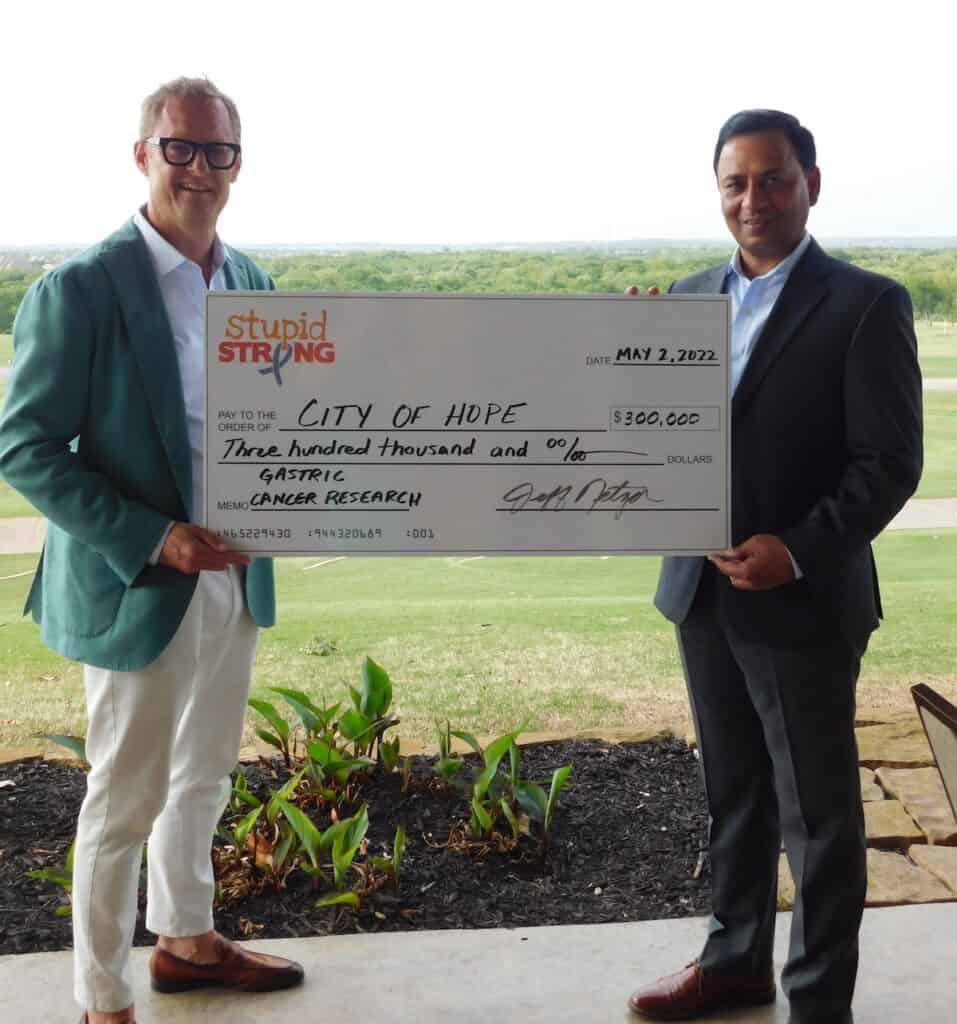We are thrilled to announce that Stupid Strong Foundation has awarded $300,000 to City of Hope researchers to accelerate progress with two important areas of innovation in gastric cancer that could change outcomes for patients and families everywhere. The first concerns a blood test as a diagnostic tool, making early detection of this deadly disease easier. The second project involves a test to help streamline and individualize therapies for patients with advanced gastric cancer, to speed up treatment and improve quality of life. More details can be found in the summaries below.
“We are so grateful to the Stupid Strong community for your support in advancing new therapies and innovations for people who urgently need them. These exciting discoveries would not be possible without you. Thank you.”
Dr. Ajay Goel

Stupid Strong has committed to donating $300,000 over 3-years to City of Hope for two critical projects:
Project 1:
Discover and validate a novel class of non-coding RNAs, circRNAs, as diagnostic biomarkers for the early detection of patients with gastric cancer.
Anticipated outcomes: We are confident that based upon the unique expression profiles of circRNAs in gastric cancer, we will develop an inexpensive, liquid biopsy test in blood for the early detection of gastric cancer.
Opportunities that may develop for future: If we are successful in this effort, ours will be the first team in the world to work on this novel class of RNAs to develop a blood-test for screening of gastric cancer in families at higher risk for this malignancy or its use as a part of annual health screenings in the US and other parts of the world. This effort will lead to larger extramural funding from the NIH and other agencies, and will provide a platform for developing larger clinical trials for prospective validation of this assay.
Project 2:
Development of a transcriptomic signature for detecting lymph node metastasis in patients with advanced gastric cancer.
Anticipated outcomes: We anticipate that given our expertise in the field, and the availability of clinical and biospecimen resources we have developed over two decades, we will be the first group to develop a novel test that can robustly predict the presence of LNM, pre-operatively, in patients with advanced gastric cancer. If successful, this will highlight the clinical impact of these findings in more appropriate patient selection to preserve their stomach, and development of improved individualized treatment strategies.
Opportunities that may develop for future: Our study, first of its kind, will provide a previously unrecognized approach that will allow preservation of stomach in patients with gastric cancer, will reduce surgical overtreatment, and will provide a basis for larger clinical trials.
